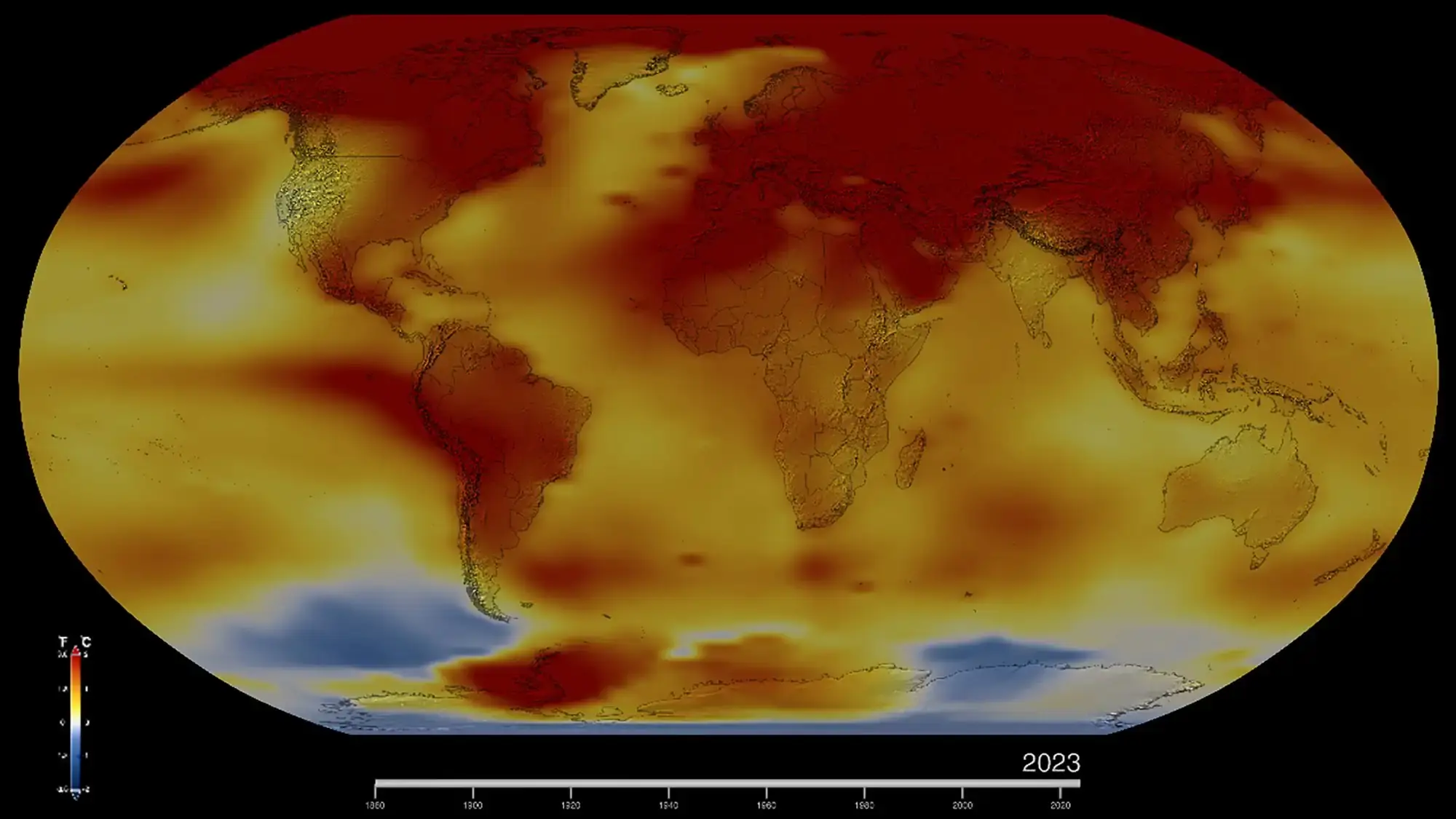According to NASA, last year was the hottest year on record, with July being the hottest month ever recorded since 1880. The summer of last year was Earth’s hottest since global records began in 1880, with June, July, and August combined being 0.41 degrees Fahrenheit (0.23 degrees Celsius) warmer than any other summer. The findings were announced by NASA and NOAA, and the analyses used surface data that included sea surface temperatures measured by ships and buoys. According to an analysis by NASA, the average surface temperature of the earth hit the highest level on record last year. Scientists at the Goddard Institute for Space Studies (GISS) report that global temperatures last year were about 1.2°C higher than the average temperature during NASA’s reference period (1951-1980).

The image above shows global surface temperature anomalies last year, which is the change in temperature for each region of the Earth compared to the average temperature for the period 1951-1980. Normal temperatures are white, temperatures above normal are red and orange, and temperatures below normal are blue.
“NASA and NOAA’s global temperature report confirms what billions of people around the world experienced last year: We are facing a climate crisis,” said NASA Administrator Bill Nelson. “From extreme heat to wildfires to rising sea levels, we can see the planet changing.”
Impacts of Climate Change
The impacts of climate change are a threat to our planet and future generations, threats that NASA and many governments tackling head-on. The record-setting temperatures of last year’s summer resulted in dire real-world consequences, including sweltering temperatures in Arizona and across the country, wildfires across Canada, and extreme flooding in Europe and Asia. Extreme weather is threatening lives and livelihoods around the world.
Hundreds of millions of people around the world experienced extremely high temperatures last year. Each month from June to December set world records for the corresponding months. July was the hottest month on record.
“The extraordinary warming we are experiencing is unprecedented in human history,” said GISS Director Gavin Schmidt. “It is caused primarily by fossil fuel emissions and is causing heat waves, heavy rainfall, and Impacts such as coastal flooding.”
While scientists have solid evidence that Earth’s long-term warming trend is caused by human activity, they continue to study other phenomena that may influence annual or multi-year climate change, such as El Niño, aerosols and pollution, and volcanic eruptions.
NASA’s Temperature Record
NASA assembles its temperature record, known as GISTEMP, from surface air temperature data from. It uses tens of thousands of weather stations, ships, and buoys around the world. The complete methodology used for the temperature calculation is available on NASA’s website.
Gizchina News of the week

NASA’s temperature record shows that the Earth’s average surface temperature has increased by a little more than 1 degree Celsius (2 degrees Fahrenheit) since 1880. The past nine years have been the warmest since modern recordkeeping began in 1880. According to an ongoing temperature analysis led by scientists at NASA’s Goddard Institute for Space Studies (GISS), the average global temperature on Earth has increased by at least 1.1 degrees Celsius (1.9 degrees Fahrenheit). The majority of the warming has occurred since 1975. The GISS temperature analysis effort began around 1980, so the most recent 30 years were 1951-1980. The raw data is analyzed, taking into consideration the spacing of temperature stations around the planet and the effect of.
NASA’s temperature analyses incorporate surface temperature measurements from more than 20,000 ship- and buoy-based observations of sea surface temperatures. It also includes temperature measurements from Antarctic research stations. The instrumental temperature record is a record of temperatures within Earth’s climate based on thermometers since 1850. The global temperature record shows the fluctuations in the temperature of the atmosphere and the oceans through various periods.
Future Projections
Based on Carbon Brief’s analysis, there is a 99% chance that last year will be the warmest year on record. The probabilities were similar across several authoritative datasets from NASA GISTEMP, NOAA, and Berkeley Earth. However, based on current models, last year might not hold the record for long. This is because there is a one in three chance that this year will be hotter.
NASA has been studying the effects of global warming and has projected future temperature changes. According to a NASA-led study, if global temperatures keep rising and reach 2 degrees Celsius (3.6 degrees Fahrenheit) above pre-industrial levels, people worldwide could face multiple impacts of climate change simultaneously, with serious consequences.
Scientists have high confidence that global temperatures will continue to rise for many decades. This is mainly due to greenhouse gases produced by human activities. NASA has released detailed global climate change projections that provide a view of future temperatures. The projections also show precipitation patterns around the world at a 15.5-mile (25 km) resolution. The models used to project Earth’s future global average surface temperature have been quite accurate. The severity of the effects caused by climate change will depend on the path of future human activities.
Conclusion
NASA’s analysis confirms that last year was the hottest year on record. Its results show that July was the hottest month ever recorded since 1880. The impacts of climate change are a threat to our planet and future generations. However, NASA is committed to providing information to help people plan for the future.
Author Bio
Efe Udin is a seasoned tech writer with over seven years of experience. He covers a wide range of topics in the tech industry from industry politics to mobile phone performance. From mobile phones to tablets, Efe has also kept a keen eye on the latest advancements and trends. He provides insightful analysis and reviews to inform and educate readers. Efe is very passionate about tech and covers interesting stories as well as offers solutions where possible.





